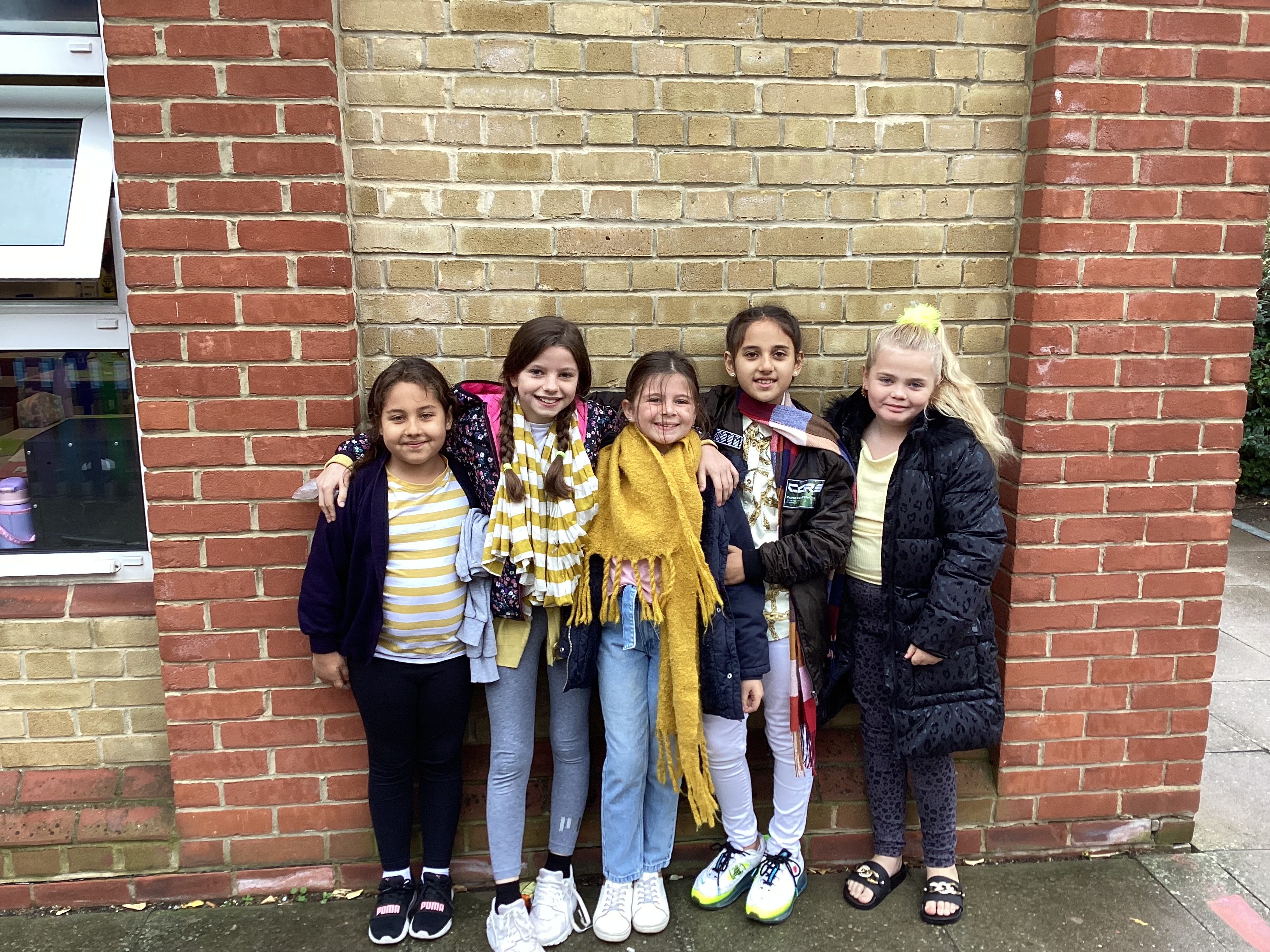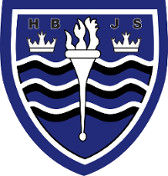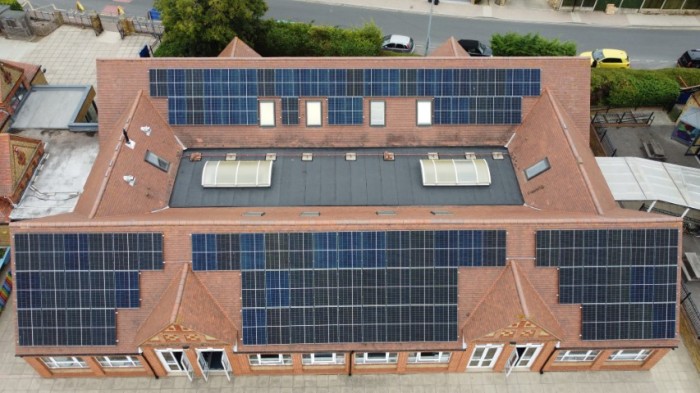Featured News

Mental Health Day at HBJS
Mental Health Day at HBJS
On Monday, we recognised World Mental Health Day. All children were invited to wear yellow to school to show young people that how they feel matters. We want to help create a future where all young people get the mental health support they need, when they need it, no matter what.
It was lovely to see all the children wearing yellow and showing their support for a great cause.


Home Activity Tracker
Our PE statement,
‘At Herne Bay Junior School we believe that all children should enjoy physical education and sport. Through physical education and sport we aim to improve health and well-being and promote active participation in a range of physical activities, in a safe and supportive environment.’
To keep our children engaged in physical activity we will be continuing the 'Daily mile' but this time from home. Our aim is to log the activity that we are completing at home by tracking our step count each day. We want to see how many steps we can achieve each week as a school. Once you have tracked your steps simply add your results into the 'Home Activity Tracker' and look out for the results in our Friday assemblies.
Click here for the Home Activity Tracker
Emotional Wellbeing Practitioner (EWP)
* For Information to refer during the summer - Please click here*
What are Emotional Wellbeing Practitioners?
EWPs are part of a new government initiative that aims to promote good emotional wellbeing and mental health by supporting children and their families through prevention, early intervention and education. EWPs are based in schools.
What support do Emotional Wellbeing Practitioners offer?
There are a number of different ways that we may be able to support your child:
• Support for children experiencing anxiety will be provided through sessions offered to parents as this has been proven to be the most effective way to address anxiety in primary school aged children;
• Support for parents who would like to understand more about their child and enjoy their time with their child more (for children under 8);
• Groups and workshops for parents on topics such as understanding your child’s behaviour, preparing for your child’s move to secondary school and ways of looking after your child’s emotional wellbeing;
• Supporting staff in your child’s school through training and consultation;
• Groups and workshops for children on topics such as ways of looking after your wellbeing, dealing with bullying and preparing for moving to secondary school;
• Supporting the school to develop a ‘whole school approach’ to emotional wellbeing and mental health.
Who is our Emotional Wellbeing Practitioner?

Hello, my name is Clare and I am the Senior Emotional Wellbeing Practitioner for the Canterbury Team. In addition to me, our team consists of 4 Emotional Wellbeing Practitioners, 1 Senior Clinician, and 1 Clinical Lead. The purpose of our team is to support children and young people with their emotional wellbeing. When supporting primary school-aged children, we typically work with parents and carers to support with understanding children’s emotional wellbeing needs as well as strategies to help children and families move forward with any difficulties they may be experiencing. We work with parents and carers in a variety of different ways. Some of this includes delivering one-off workshops (both face-to-face and online), sharing signposting information and raising awareness of further services and resources that you can access, as well as delivering more targeted long-term support through either 1-1 or group sessions. Occasionally, the Emotional Wellbeing Team delivers workshops and assemblies to children in the school too. These workshops typically focus on friendships, understanding worries, and supporting with the transition to secondary school. We can also work with schools to develop more bespoke workshops and activities for children. We work as a team across all our Canterbury and Coastal schools so hopefully you will get to know a few of us as you see us at Herne Bay Junior School!
How does my child access this support? How do I access this support?
Groups and workshops may be provided to your child in school and you will be informed if your child is included. Groups and workshops for parents will be advertised by the school. If you would like to receive support for you child who is experiencing anxiety or you would like support to understand your child’s behaviour more and enjoy your time with your child more (for parents of children under 8), then you will need to complete a brief request for support form.
They are available to access here Request for support form or you can collect paper copies from the office. Please return the Request for Support forms to Mrs. Edwards, via the office or email: This email address is being protected from spambots. You need JavaScript enabled to view it.
Secondary Transition
Information from Secondary Schools
Selecting preferences for secondary schools can be a daunting process, to help you make an informed choice for your child we have collated information we have received from local secondary schools which is detailed below. We hope you find this useful. If you have questions relating to a particular school, please contact them directly.
|
The Abbey School |
Website admissions page |
| The Archbishop’s School Canterbury | |
| Barton Court Grammar School | |
| The Canterbury Academy | |
|
Chatham and Clarendon Grammar Schoo |
|
| Dane Court Grammar School | |
| Herne Bay High School | Website admissions page |
| Queen Elizabeth's Grammar School | Website admissions page |
| Spires Academy | |
| The Whitstable School | Website admissions page |
| The Langton Grammar School for Boys | |
| Simon Langon Girls' Grammar School | |
| St Anselm's Catholic School |
The admissions process
There are a number of changes to the admissions process this year. One significant change is that parents may now name up to four schools on their application form, up from four in previous years. Furthermore, KCC will also allow parents to make changes to their application up until Friday 9th December 2022 This date is after the outcomes of the PESE (Kent Test) will be emailed to parents.
Further information is available in this presentation from Kent.
If you have any questions about the admissions process, please contact the school office.
Mindfulness
What is Mindfulness?
Mindfulness is simply paying attention. Noticing your experience (thoughts, emotions, sensations) as it arises with curiosity and kindness and without judgement.
‘Mindfulness is simply being aware of what is happening right now without wishing it were different; enjoying the pleasant without holding on when it changes (which it will); being with the unpleasant without fearing it will always be this way (which it won’t).’ James Baraz
We know that we can improve our physical fitness and well-being by exercising regularly and eating well but may forget that we have the same capacity to strengthen our mental fitness. Practicing mindfulness meditation can help us do this.
How does Mindfulness help?
Practicing mindfulness changes our perception. It helps us develop the capacity to step back and be aware of our thoughts. If how we think about something determines our response to it, then it follows that if we change the way we think about something, our response will also change. We can’t stop challenging things happening to us, but we can learn to respond wisely rather than react automatically to them.
Other benefits include:
• Stress reduction
• Reduced depression and anxiety
• Increased self-compassion
• Increased compassion for others
• Improved sleep
• Increased happiness
• Improved working memory
Who uses Mindfulness?
Mindfulness has been around for thousands of years – its origins lie in Buddhism. In the last 30 years there has been more research into the benefits of mindfulness and it has now moved into the mainstream.
• Healthcare
• Counselling/Mental Health services
• Prison service
• Businesses’ in the private sector
• Education
How we use Mindfulness in school
At Herne Bay Junior School, all staff have received mindfulness training. The children practice it throughout their school week in a variety of ways, such as:
• Mindful colouring, dot to dot, tracing etc…
• Breathing exercises
• Moments of calm with relaxation music
• Mindfulness scripts via apps, websites or recordings
• Yoga
• Our outdoor environment, such as the forest school area, is used for mindful activities
• Mindfulness lunchtime club run by Mrs Edwards twice a week
Practicing Mindfulness at home
Since the school closure in March due to COVID-19, Mrs Edwards, our Director of Mental Health and Well-being, has also recorded a number of mindfulness scripts for Mindful Monday and Well-being Wednesday. If you wish to use these with your children, the link to her YouTube channel is –
https://www.youtube.com/playlist?list=PLdsWBuHju7qGcrojaE6fvN5VLsSxHJ4sy






